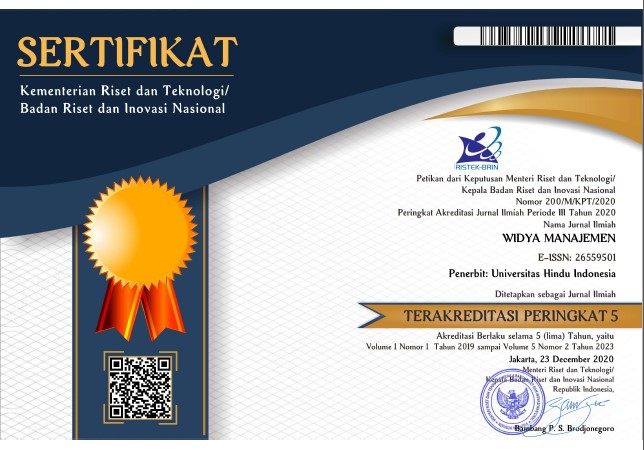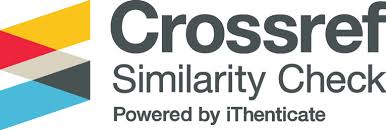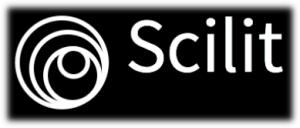Pengaruh Kreativitas terhadap hubungan Kepuasan Kerja dan Kinerja Karyawan pada Koperasi di Kecamatan Denpasar Utara
Abstract
Maximum cooperative management has an impact on cooperative performance that is getting better and healthier. Management of human resources in cooperatives is a way to improve cooperative performance. From the development of cooperatives and the results of interviews with cooperative employees about creativity that tends to be low, job satisfaction is lacking and employee performance is low, it will be very important and it is necessary to do research. Research respondents totaled 60 people, with a sampling technique that is non-probability sampling and analyzed using Smart PLS. The results and discussion of the data in this study indicate that the performance of employees at cooperative institutions in the North Denpasar sub-district is strongly influenced by the level of creativity and the role of employee job satisfaction itself. From these results, it is suggested that cooperative institutions in developing their businesses should be based on the value of creativity in providing services to the community, considering that cooperative institutions currently have almost the same service concept so they need to be supported by a dimension of creativity that provides innovation value in competition.
References
Ali, M. (2017). Pengaruh Kepuasan Kerja Terhadap Kinerja Pegawai pada Badan Ketahanan Pangan dan Pelaksana Penyuluhan Daerah Kota Samarinda. Jurnal Paradigma (JP), 2(3), 406–417.
Astuti, T. P., Sitawati, R., & Tukijan. (2019). Pengaruh Kreativitas dan Perilaku Inovatif Terhadap Kinerja Karyawan Dengan Kepuasan Kerja Sebagai Variabel Mediasi (Studi Pada Hotel Pandanaran Semarang). Jurnal Ekonomi Manajemen Dan Akuntansi, (47).
Colquitt, Jason A., Lepine, Jeffery A., & Wesson, M. J. (2011). Organizational Behavior; Improving Performance and Commitment in the Work Place, Second Edition.
Dama, J., & Ogi, I. W. J. (2018). Pengaruh Inovasi Dan Kreativitas Terhadap Kinerja Karyawan Pada PT Bank Mandiri (Persero) Tbk. Manado. Jurnal EMBA: Jurnal Riset Ekonomi, Manajemen, Bisnis Dan Akuntansi, 6(1).
Diskopukmbaliprov. (2020). No Title.
Eschleman, K. J., Madsen, J., Alarcon, G., & Barelka, A. (2014). Benefiting from creative activity: The positive relationships between creative activity, recovery experiences, and performance?related outcomes. Journal of Occupational and Organizational Psychology, 87(3), 579–598.
Febriyana, W. (2015). Pengaruh Kepuasan Kerja Terhadap Kinerja Karyawan PT. Kabepe Chakra . E-Proceeding of Management, (2).
Hasanah, H., & Hanifah, A. (2020). Implementasi Model Pengembangan Pengelolaan Koperasi Simpan Pinjam (KSP). Jurnal Muhammadiyah Manajemen Bisnis, 1(1).
Hughes, D. J., Lee, A., Tian, A. W., Newman, A., & Legood, A. (2018). Leadership, creativity, and innovation: A critical review and practical recommendations. Leadership Quarterly, 29(5).
Indrajita, I. K., Sadiartha, A. N. G., & Mahayasa, I. G. A. (2021). Pengaruh Kreativitas dan Inovasi terhadap Kinerja Karyawan pada PT. Tohpati Grafika Utama Denpasar. Widya Amrita: Jurnal Manajemen, Kewirausahaan dan Parwisata, 1(1), 1-13.
Juwono, O., & Wangsadinata, Y. (2010). Kreativitas, Gaya Kepimpinan dan Kompetensi dalam Membentuk Kepuasan Kerja Karyawan. The Winners, 11(1).
Kreitner & Kinichi. (2007). Organization Behavior. Irwin. McGraw-Holl, Boston.
Kurniawan, J, C., & Nugroho, Y, A, B. (2021). Pengaruh Employee Creativity Terhadap Job Performance Yang Dimediasi Oleh Job Satisfaction Pada Karyawan XYZ Hospitality Kota Bandung. Jurnal Manajemen, 18(1).
Mangkunegara A.A., & A. P. (2013). Manajemen Sumber Daya Manusia Perusahaan. Bandung: PT. Remaja Rosda Karya.
Mathisen, G. E., Einarsen, S., & Mykletun, R. (2012). Creative leaders promote creative organizations. International Journal of Manpower, 33(4).
PS, J. V. (2014). Studi tentang Manajemen Pengelolaan Koperasi Karyawan Keluarga Besar Petrokimia Gresik (K3PG). Jurnal Pendidikan Ekonomi (JUPE), 2(2).
Ratnawati, E, S. (2015). Mengelola Sumber Daya Manusia Pada Koperasi Wanita (Penilaian Kinerja Kopwan Berdasarkan Aspek Organisasi). In Prosiding Seminar Nasional Pendidikan Administrasi Perkantoran.
Robbins, S. P., & Judge, T. A. (2008). Perilaku organisasi. Jakarta: Salemba Empat.
Rosita, T., & Yuniati, T. (2016). Pengaruh Kepuasan Kerja Terhadap Kinerja Karyawan Dengan Komitmen Organisasional Sebagai Variabel Intervening. Jurnal Ilmu Dan Riset Manajemen, 5(ISSN : 2461-0593).
Sedyowidodo, U., & Susanto, T. (2013). Analisis Pengaruh Pemikiran Kreatif Dan Perilaku Inovatif Terhadap Kinerja SDM Dengan Metode SEM. Jurnal Manajemen, 17(3).
Setiawan, I., A., & Ghozali, I. (2006). Akuntansi keperilakuan konsep dan kajian empiris perilaku akuntan. Semarang: Universitas Diponegoro.
Siddiqi, H., & Qureshi, M. (2016). The Impact of Employees’ Creativity on the Performance of the Firm. Research issues in social sciences (Vol. 1).
Soori, Z., & Ferasat, H. (2016). The relationship between creativity and job performance khorramabad municipal departments. Journal of Applied Environmental and Biological Sciences, 6(192198), 66–77.
Sudiyanto, T. (2020). Pengaruh Kepuasan Kerja dan Beban Kerja Terhadap Kinerja Pegawai Pada Dinas Tenaga Kerja dan Transmigrasi Banyuasin. Jurnal Media Wahana Ekonomika, 17(1), 93–115.
Suwardi, S., & Utomo, J. (2011). Pengaruh Motivasi Kerja, Kepuasan Kerja, Dan Komitmen Organisasional Terhadap Kinerja Pegawai (Studi Pada Pegawai Setda Kabupaten Pati). Jurnal Analisis Manajemen, 5(1).
Ulum, I., Ghozali, I., & Chariri, A. (2008). Intellectual capital dan kinerja keuangan perusahaan; Suatu analisis dengan pendekatan Partial Least Squares (PLS).
Wibowo. (2007). Manajemen Kinerja. Edisi ketiga. Jakarta. PT.Raja Grafindo Prasada.
Wijaya, I. K. (2018). Pengaruh Kepuasan Kerja Terhadap Kinerja Karyawan Cv Bukit Sanomas. Agora, 6(2).
Yusrita., & Sundari, W. (2018). Kreativitas Dan Kepuasan Kerja Terhadap Kinerja Karyawan. Jurnal Riset Dan Manajemen Bisnis, 4(2).
Zhou, J., & Shalley, C. E. (2003). Research On Employee Creativity: A Critical Review And Directions For Future Reserach. Research in Personnel and Human Resources Management, 22.
Reproduction Policy
Every author submitting articles to Widya Manajemen must make a statement that the manuscript is free from plagiarism and is not being considered and published in other journals.
Articles that have been published are copyrighted by the Program Studi Manajemen FEBP UNHI. For educational purposes, the contents of the article may be duplicated or reproduced as long as the source of the article is mentioned. Written requests must be submitted to the editor to obtain permission to republish the contents of the article for purposes other than educational purposes.
-----------------------------------------------------------------------------------------------------
Kebijakan Reproduksi
Setiap penulis yang menyerahkan artikel ke Widya Manajemen harus membuat surat pernyataan bahwa naskahnya bebas dari plagiarisme dan tidak sedang dipertimbangkan dan dimuat dalam jurnal lain.
Artikel yang telah dipublikasi menjadi hak cipta Program Studi Manajemen FEBP UNHI. Untuk tujuan edukatif, isi dari artikel dapat digandakan atau direpublikasi selama menyebutkan sumber dari artikel tersebut. Permintaan tertulis harus diajukan kepada editor untuk memperoleh ijin merepublikasi isi dari artikel untuk tujuan lainnya selain tujuan edukatif.






.jpg)









